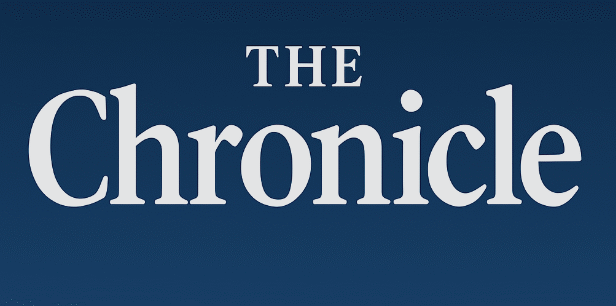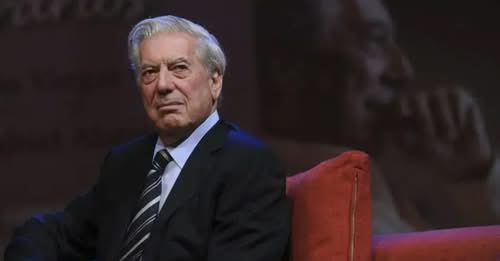Renowned Peruvian Author and Nobel Laureate Mario Vargas Llosa Dies at 89, Leaving Behind a Towering Legacy in Global Literature, Political Thought, and the Latin American Literary Boom Movement
April 14, 2025 — Lima, Peru — The world of literature is in mourning following the death of Mario Vargas Llosa, the acclaimed Peruvian author, essayist, and Nobel Prize laureate, who passed away at the age of 89. The news was confirmed on Sunday by his son, Álvaro Vargas Llosa, who described his father’s final days as peaceful and surrounded by family.
Vargas Llosa’s death marks the end of an era in Latin American and global literature, as he was one of the last living representatives of the so-called “Boom Latinoamericano”—a revolutionary literary movement of the 1960s and 70s that catapulted Latin American voices onto the global stage.
A Monumental Literary Legacy
Born in Arequipa, Peru, on March 28, 1936, Mario Vargas Llosa rose to international fame with his debut novel, “The Time of the Hero” (La ciudad y los perros, 1963), a searing critique of authoritarianism and military education in Peru. The novel, considered controversial at the time, established him as a bold and unflinching voice. He went on to pen dozens of novels, essays, and plays, weaving intricate narratives that explored power, corruption, identity, freedom, and the inner workings of society.
His other celebrated works include “Conversation in the Cathedral”, “The Green House”, “Aunt Julia and the Scriptwriter”, “The War of the End of the World”, and “The Feast of the Goat”, a haunting examination of Rafael Trujillo’s dictatorship in the Dominican Republic. His storytelling style—rich in structure and philosophical depth—set a new standard for political and historical fiction.
In 2010, Vargas Llosa was awarded the Nobel Prize in Literature for his “cartography of structures of power and his trenchant images of the individual’s resistance, revolt, and defeat.” He was the first Peruvian and one of the few Latin Americans to receive the honor, joining the ranks of other literary legends like Gabriel García Márquez and Octavio Paz.
More Than a Novelist: A Public Intellectual and Political Voice
Beyond his literary achievements, Vargas Llosa was also a prolific journalist and public intellectual. His sharp essays on politics, culture, and economics earned him both admiration and criticism across the Spanish-speaking world. He frequently championed liberal democracy, individual freedoms, and market economies, and became an outspoken critic of populism and authoritarian regimes, regardless of their ideological leaning.
In 1990, Vargas Llosa ran for President of Peru as the head of a center-right coalition. Though he lost the election to Alberto Fujimori, his campaign marked a pivotal moment in Peruvian political history. Even after stepping away from politics, he remained an influential voice, writing columns and appearing in forums to discuss global affairs well into his 80s.
Personal Life and Legacy
Vargas Llosa’s life was as complex and colorful as his novels. He was married twice—first to his aunt Julia Urquidi, famously fictionalized in “Aunt Julia and the Scriptwriter”, and later to his cousin Patricia Llosa, with whom he had three children. In recent years, his personal life made headlines when he had a high-profile relationship with Spanish socialite Isabel Preysler, which ended in 2022.
He held dual citizenship in Peru and Spain and maintained a presence in both countries. Over his career, he received numerous awards and honorary degrees, including the Cervantes Prize, the Prince of Asturias Award, and France’s Legion of Honor.
Tributes Pour In
News of Vargas Llosa’s death has prompted an outpouring of tributes from fellow writers, world leaders, and fans across the globe.
Peruvian President María Elena Alvarado released a statement saying:
“Mario Vargas Llosa was not only a literary icon of Peru, but a moral compass for generations who believed in the power of words to challenge injustice. His voice will echo forever in the pages he leaves behind.”
Chilean author Isabel Allende described him as “a titan of storytelling who gave voice to Latin America’s soul.”
The Royal Spanish Academy, of which Vargas Llosa was an active member, declared his passing “an incalculable loss to the Spanish language.”
An Enduring Voice
Though his physical presence is now gone, Mario Vargas Llosa leaves behind a towering legacy of literature that will continue to inspire generations. His books have been translated into over 30 languages and taught in universities around the world. His intellectual influence continues to ripple through the spheres of literature, politics, and journalism.
At a time when the world is grappling with truth, identity, and the preservation of democratic values, Vargas Llosa’s work remains more relevant than ever. He reminded readers that fiction could reveal uncomfortable truths and that the human spirit, even when crushed under oppressive systems, could still seek freedom through thought, language, and imagination.
His family has announced that funeral arrangements will be private, with a public memorial to be scheduled in Lima later this month. In the meantime, bookstores and libraries around the globe are seeing a resurgence in interest in his work—a fitting tribute to a man whose pen never wavered in its quest for truth.
Mario Vargas Llosa (1936–2025): A writer of conscience, a citizen of the world, and a voice that will never fade.

